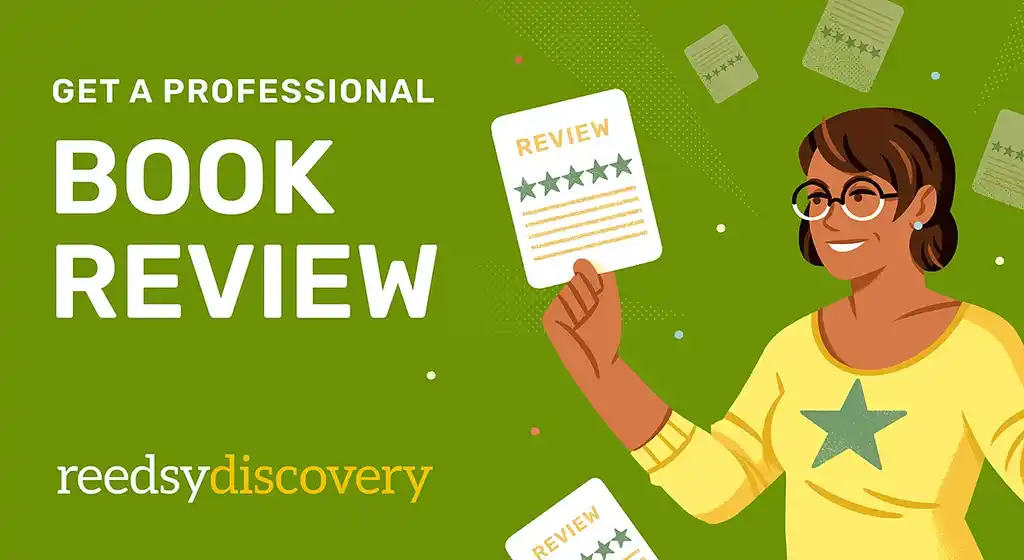Last updated on Oct 15, 2025
Ten Ways to Handle Bad Book Reviews
About the author
Reedsy's editorial team is a diverse group of industry experts devoted to helping authors write and publish beautiful books.
More about the Reedsy Editorial Team →Martin Cavannagh
Head of Content at Reedsy, Martin has spent over eight years helping writers turn their ambitions into reality. As a voice in the indie publishing space, he has written for a number of outlets and spoken at conferences, including the 2024 Writers Summit at the London Book Fair.
View profile →Alex J. Cavanaugh works in web design, graphics, and technical editing. Online, he is the Ninja Captain and founder of the Insecure Writer’s Support Group. He’s the author of Amazon Best-Sellers CassaStar, CassaFire, CassaStorm, and Dragon of the Stars. The author lives in the Carolinas with his wife. Learn more about Alex by checking out his website, following him on Twitter, or heading to his Bookbub profile! In this guest post, he shares his tips for handling negative book reviews.
1. Refrain from responding to the reviewer
As much as you might want to respond (either politely or with harsh words), don’t do it. Once you’ve left a comment, sent out a Tweet, or posted to Facebook, your negative response will be out there for everyone to see. You might get a few fans to rally to your cause, but most people will view you, not the reviewer, as the villain. Even if you later delete it, the damage is done. Even sending an email is a bad idea as well. So refrain from adding fuel to the fire and keep your grumblings private.
2. Know that it’s part of the process
Guess what? We all get negative and unflattering reviews. It goes with the territory. Remember, you created art. Art is subjective and not everyone will like your book. You can’t please every reader. (And if you do, then you really didn’t say anything of value.) Shake it off and move on.
3. Laugh about it
What are you going to do — cry? Might as well laugh about it! Often a bad review is poorly written or so far-fetched, it makes no sense. So turn the tables and have a good chuckle about it. (Besides, it’s really difficult to stay angry when you’re laughing.)
4. Remember bad reviews add validity to good reviews
What do you think when a book has nothing but five-star reviews? You start to wonder, don’t you? Friends and family of the author, maybe? Paid reviews, perhaps? A couple of bad reviews means some readers were honest — which means the rest of the good reviews are probably honest as well. (Plus, sometimes people want to know if the book is really that bad, so they ended up reading it to find out!)
5. Look for constructive criticism in the review
Often two and three-star reviews will offer constructive criticism. Look for it. Is there any validity to what was said? Can you see areas where you can improve or issues you need to address? (Several reviewers didn’t like the fact there were no women in my first book. I listened and made sure there were several women in the next one, including a female main character. That book garnered better reviews than the first.) Learn from the bad reviews and write an even better book next time.
6. Don’t focus on the negative
We tend to focus on the negative. Even obsess over it! We can have a hundred great reviews and one bad one. Which one gets our attention? The bad one! Who cares? What do we do when calculating averages? We drop the top numbers and the bottom numbers. Do the same: ignore that bad review and don’t even factor it into the equation.
7. It’s just one person’s opinion
Everybody has an opinion. And they are just that — opinions, not facts. So one or two people didn’t like your book? Big deal! Out of millions of readers, that’s not even a drop in the bucket. (Unless all of your reviews are bad, of course!)
8. Don’t let bad reviews stop you
Yes, putting a book out there is scary and nerve-racking. It’s a creative endeavor, which makes it a little more personal. We can’t take reviews personally though. We have to believe in ourselves and not let bad reviews stop us. Have you ever encountered a jerk at your work? Did it cause you to give up and stop working forever? No! So don’t let a negative review from someone you’ve never met stop you from writing.
9. Write the next book
This is the best thing you can do! Just hunker down and write your next book. Show those naysayers that you are a great writer. Take your experience from the previous book and pour it into the next one. Really focus. You’ll be so busy writing, you won’t have time to worry about bad reviews.
10. Kill off the reviewer in your next book
If all else fails, just put that reviewer into your book as a murder victim or monster that's slain by the hero! You’ll feel so much better.
What other creative ways can you handle bad reviews? Leave your tips in the comments below! Or, if you're looking for ways to get more reviews, check out our directory of blogs that focus on book reviews!








2 responses
Heather says:
21/02/2020 – 02:48
It's so important not to take this stuff personally! Great article! Heather
cie the ornery old lady says:
24/02/2020 – 01:02
I already responded to this post at the Insecure Writers' Support Group but just wanted to give Alex kudos. He has a lot of great advice. Unfortunately, I'm the kind of person who can get ten good reviews and the bad one is the one that will stick with me. In order not to make my or my family's lives miserable, I refrain from reading any of my reviews, good or bad.